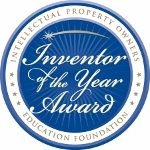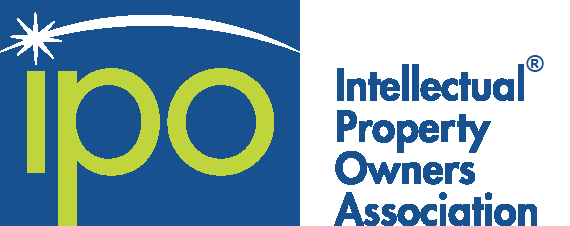 |
* * * CUSTOMERS’ REQUESTS FOR INDEMNIFICATION IN PATENT INFRINGEMENT SUIT DID NOT GIVE SUPPLIER DJ STANDING
Microsoft Corp. v. DataTern, Inc. 13-1184 — On April 4 in an opinion by Judge MOORE, a split Federal Circuit overturned a district court’s denial of DataTern’s motion to dismiss. DataTern’s patent claimed a method and apparatus for facilitating interaction between user applications and a relational database. DataTern sued Microsoft’s customers alleging infringement and several customers sought indemnification. Microsoft sued for a declaration of invalidity and no infringement. The district court found jurisdiction over Microsoft’s suit based on the customers’ indemnification demands and DataTern’s refusal to grant Microsoft a covenant not to sue, among other factors. DataTern argued it never approached Microsoft for a license, never accused Microsoft of infringement, and indicated that it did not intend to sue Microsoft. Microsoft argued that the indemnification demands coupled with DataTern’s aggressive litigation strategy supported jurisdiction.
The Federal Circuit held that, absent an obligation to indemnify, Microsoft had no right to bring the declaratory suit based solely on its customers being sued for infringement. The customers’ indemnification requests were insufficient to give Microsoft standing.
Chief Judge RADER, dissenting, argued the totality of the circumstances supported jurisdiction.
(1 to 4 stars rate impact of opinion on patent & trademark law)
 |
* * * PATENT OWNER COULD NOT BRING SECTION 145 SUIT CHALLENGING USPTO EX PARTE REEXAMINATION DECISION
In Re Teles AG Informationstechnologien 12-1297 — On April 4 in an opinion by Judge DYK, the Federal Circuit upheld a district court decision that it lacked jurisdiction over a suit under Patent Act section 145. Teles’s patent claimed a method and apparatus for transmitting data. Following an ex parte reexamination, the USPTO found several of Teles’s claims would have been obvious. Rather than appeal directly to the Federal Circuit, Teles sued in the U.S. District Court for the District of Columbia. The district court decided patent owners could not file suit under Section 145 after the 1999 American Inventors Protection Act.
The Federal Circuit decided the version of section 145 in effect at the time did not authorize Teles to bring suit in district court challenging the USPTO’s ex parte reexamination decision. After the 1999 amendments, Section 145 permitted such suits only by patent applicants, not patent owners.
(1 to 4 stars rate impact of opinion on patent & trademark law)
IPO SUPPORTS AMENDING BANKRUPTCY CODE TO ADD TRADEMARKS TO DEFINITION OF INTELLECTUAL PROPERTY
On March 26 the IPO Board of Directors adopted a resolution supporting in concept the inclusion of trademarks, service marks and trade names in the definition of intellectual property in the Bankruptcy Code, in circumstances where the trustee, debtor or acceptable designee agrees to assume the contractual obligation to monitor and control the quality of the licensed product or service. IPO’s resolution builds on a provision in House Judiciary Chairman GOODLATTE’s (R-VA) Innovation Act, H.R. 3309, on abusive patent litigation, which passed the House in December 2013. It is also similar to a provision in Senate Judiciary Chairman LEAHY’s “Patent Transparency and Improvements Act,” S. 1720, introduced in November and expected to be marked up in committee this week. IPO’s resolution is not identical to either of these proposals. The texts of all resolutions adopted since 2001 by the IPO Board are posted on the IPO website.
LOOKING FOR A GREAT WAY FOR YOUR ORGANIZATION TO SPREAD THE WORD ABOUT THE VALUE OF IP?
Become a sponsor of the IPO Education Foundation’s IP Video Contest. Now in its fourth year, the contest has given students across the country the opportunity to learn about the value of the patent system and to share their knowledge in a creative way. Contest winners receive a scholarship or cash prize of $5,000. If your company is interested in sponsoring an award contact Colleen Wellington-Caban at cwellington-caban@ipo.org.
IP IN THE MASS MEDIA
Apple and Intertrust Settle Patent Suit
On Friday Reuters reported that Apple Inc. and Intertrust Technologies Corp. settled a patent suit against Apple on 15 patents related to security.
Google Fighting for Trademark Registration on “Glass”
Last Thursday the Wall Street Journal published an article about Google Inc.’s efforts to obtain a trademark registration on the word “Glass.”
 |
THIS WEEK ON IPO’S IP CHAT CHANNEL: EXPORT CONTROLS
Tune in to the IP Chat Channel, Wednesday, April 9 at 2:00p.m. ET for a discussion on Export Controls: Understanding and Managing the Risk. Most U.S. patent lawyers know about the USPTO’s Licensing and Review office, which administers the Patent Secrecy Act and grants applicants a license to file patents abroad. But if that is all a patent lawyer knows about export controls, it exposes his or her clients to significant risk. It’s a technology export if a U.S.-based inventor puts drawings or test results in an envelope and mails it to Germany. So is the same inventor walking across his lab and handing the data to a visiting scientist from China, or allowing a foreign national or person in a non-U.S. jurisdiction to retrieve the information from a company or third-party server. This webinar will give an overview of the two other sets of export control regulations, transgression of which can inflict hefty penalties and reputational damage on corporations: the International Traffic in Arms Regulations (ITAR), which covers military items, and the Export Administration Regulations (EAR) which cover “dual use” items. Our panel will focus on where the line is drawn between controlled and not-controlled information and on corporate environments (in addition to R&D) where export rules could come into play, such as mergers & acquisitions, cloud computing, and patent searching; outline key components of creating and monitoring a corporate compliance effort; and discuss what it means to clean up past transgressions through a “voluntary disclosure” to federal authorities. Our panelists are DANIEL STAUDT, chief IP counsel for Siemens Corp. in North America, and two law firm attorneys who specialize in export controls, SCOTT FLICKER of Paul Hastings LLP and ROBERT TORRESEN of Sidley Austin LLP. To register, click here. CLE granted in many states. IP Chat Channel webinars are recorded and available after the live webinars at www.ipo.org/IPChatChannel.
 |
IPO EDUCATION FOUNDATION CALL FOR NOMINATIONS
IPO Education Foundation’s 41st Inventor of the Year Award presents an opportunity for you to obtain major recognition for a deserving employee, client, or colleague as an outstanding recent inventor. The Foundation will acknowledge nominators. The deadline for nominations is May 16. For more information or to nominate an inventor, click here.

